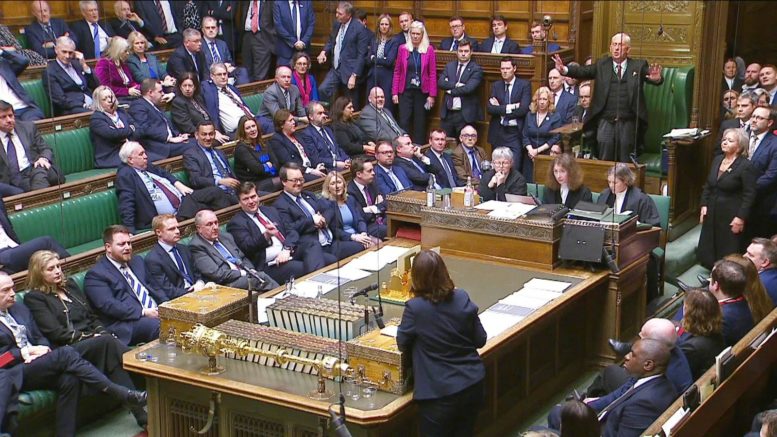The speaker of the House of Commons issued a rare apology following a contentious parliamentary debate on Gaza. The debate culminated in a unanimous vote for a Labour motion advocating for an immediate humanitarian ceasefire. However, this decision came after the speaker, Lindsay Hoyle, departed from established parliamentary tradition to facilitate the motion’s vote, sparking anger among Conservative and Scottish National Party (SNP) MPs.
Hoyle’s decision was met with criticism, with some MPs attempting to oust him from his position while others urged the Conservatives to oppose him in the next general election. Despite the uproar, Labour’s amendment passed without opposition after Tory and SNP MPs walked out of the chamber. Labour leader Keir Starmer accused them of prioritizing political games over addressing the crisis.
The six-hour debate was marked by parliamentary disruptions, shouting matches, and accusations of bias against the speaker. In an unexpected move, Hoyle apologized to MPs, acknowledging that the proceedings did not reflect the House’s best conduct and expressing regret for his role in it.
The day saw Starmer personally lobbying Hoyle to allow the Labour motion to proceed to a vote, fearing a significant rebellion within Labour ranks if an alternative motion was not presented. Ultimately, Labour’s amendment, which called for a humanitarian ceasefire under specific conditions, gained support, averting a potential leadership challenge for Starmer.
Despite criticism, Hoyle’s decision to allow both Labour and government amendments was motivated partly by concerns for MPs’ safety, given the threats some had faced following previous abstentions. However, this move deviated from established parliamentary norms, drawing further criticism from within the House.
Following a motion expressing no confidence in the speaker, Mordaunt announced the government’s decision not to participate in the votes, allowing Labour’s amendment to pass unopposed. Despite lingering resentment among some MPs, Labour officials believe Hoyle’s position remains secure, viewing much of the opposition as political theater.
Nevertheless, the controversy over parliamentary procedure during a debate on the Gaza conflict has raised concerns about the Commons’ reputation among voters, highlighting the delicate balance between political maneuvering and effective governance.

